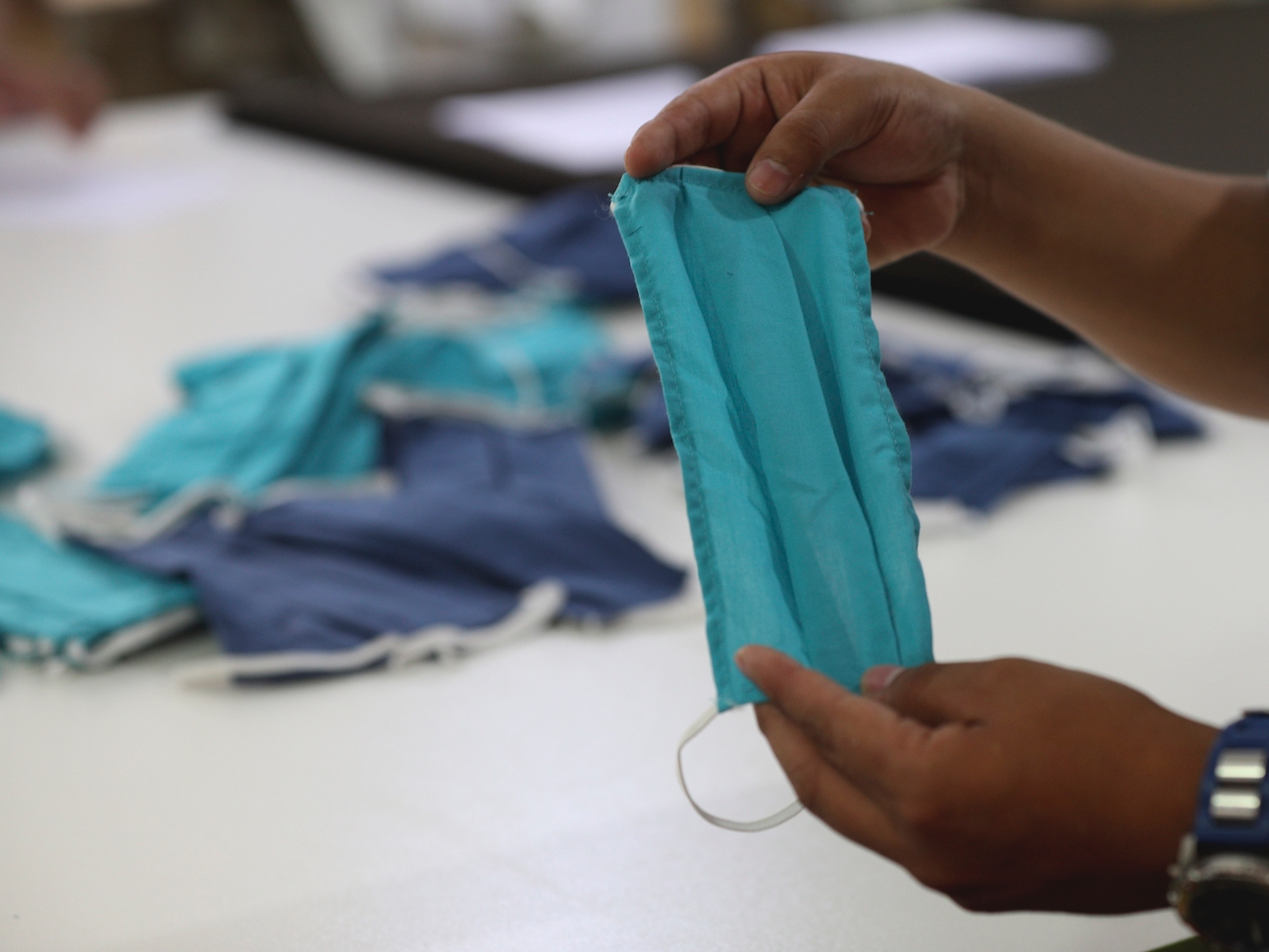- The Centers for Disease Control and Prevention (CDC) now recommends that the public wear cloth masks to prevent the spread of the novel coronavirus.
- Previously, health officials had urged the public not to buy face masks to prevent shortages for medical professionals, who need masks for protection while treating COVID-19 patients.
- The CDC released a guide to crafting masks at home with various household materials, including bandanas, coffee filters, and hair ties.
- However, evidence on whether cloth masks work to prevent viral infection is mixed, according to experts.
- Visit Business Insider’s homepage for more stories.
As the novel coronavirus continues to spread, health officials have begun to reconsider whether the public should be advised to wear face masks while conducting essential business such as grocery shopping or going to work.
The Centers for Disease Control and Prevention (CDC) is now recommending Americans wear cloth masks in public, particularly in dense areas, such as New York City.
Though evidence on the effectiveness of simple cloth masks is thin, the CDC says there is a chance they could slow the transmission of the virus, and prevent people who have COVID-19 but are not yet showing symptoms from unknowingly spreading it to others.
And so, on Monday, days after telling Americans to start fashioning their own masks, the CDC released a guide to creating a homemade cloth mask, with options for those who are able to sew, as well as a no-sewing required option crafted from a bandana, coffee filter, and hair ties.
Cloth masks should fit snugly, include multiple layers, and be washable without damaging the material, the CDC advises
The CDC's guide to mask-making at home offers three options using household materials such as cotton cloth, T-shirts, or bandanas.
If you're not able to sew or don't have materials available, a simple mask can be constructed by cutting a T-shirt into a square that fits snugly across the nose and mouth. Leave extra fabric to use as tie strings along the top and bottom to secure the mask to your face, the guide says.
Another option is to cut a section of coffee filter and place it in the center of a bandana that's been folded in half lengthwise. Then, fold the top and bottom of the bandana over the filter to create a long, layered strip of fabric. To wear the mask, place a pair of hair ties about 6 inches apart in the middle of the fabric length, folding the bandana around the ties, which can fasten around your ears to secure the mask to your face.
If you can sew and you have a machine handy, the CDC also offers a simple pattern for sewing your own mask from cotton cloth and elastic (you can substitute rubber bands or hair ties).
Regardless of how you craft your masks, it's important that it fits snugly but doesn't restrict your breathing, according to the CDC. You should use multiple layers of fabric, tightly secured to your face.
Finally, the mask should be washable without damaging the materials - reusing the mask frequently without washing it could reduce its effectiveness.
Despite the guidance, experts and evidence are still divided on whether cloth masks are effective in preventing the virus
Although health officials (and the White House) have begun to pivot toward advising the public to wear masks, scientists still don't agree on whether cloth masks are effective, and the evidence is mixed. Most of what we know about masks' effectiveness is based on the flu and other respiratory viruses, so there's a lot
According to some research, cloth is much less effective than a proper N95 filter respirator, but is still better than nothing. A 2008 study concluded that while homemade masks may not offer as much protection as surgical masks or N95s, particularly against tiny aerosols, they could still reduce the transmissibility of viral particles by a small but significant amount.
Some researchers have noted that cloth masks could actually absorb viral particles instead of acting as a barrier, potentially doing more harm than good.
"Homemade masks may give more peace of mind than actual physical protection," textile engineer Emiel DenHartog, Associate Director of the Textile Protection and Comfort Center at North Carolina State University, previously told Business Insider.
And improperly wearing or removing a mask could also transfer the virus to your hands or face, putting you at risk.
"There is very limited to no research at all to demonstrate that these effects could be limited in any meaningful way for the general population," DenHartog added. "I prefer to advise people that in personal protection, it is generally not true that anything is better than nothing."
What is agreed upon, though, is that medical masks and especially N95s should be saved for healthcare workers on the front lines - the protection is crucial since medical staff are exposed to much higher viral loads than the public in the course of treating COVID-19 patients.
And the best advice is still to stay home whenever possible, wash your hands, and practice good physical distancing habits to protect yourself and others.
See also:
